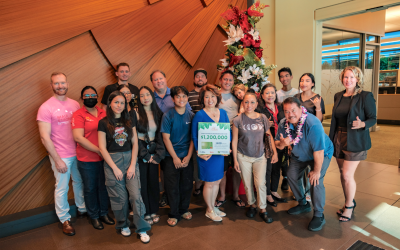 U.S. Court of Appeals for the Ninth Circuit overturns its own decision on tip pools
U.S. Court of Appeals for the Ninth Circuit overturns its own decision on tip pools
A divided federal appeals court ruled Feb. 23 that the Department of Labor has the authority to regulate the tip-pooling practices of employers who do not take a tip credit, including prohibiting these employers from including back-of-the-house staff in tip pools.
The controversial 2-1 decision by the U.S. Circuit Court of Appeals for the Ninth Circuit in Or. Rest. & Lodging Ass’n v. Perez (2016 BL 50460, 9th Cir., No. 13-35765, 2/23/16) reverses two federal district court rulings that relied on the Ninth Circuit’s 2010 ruling in Cumbie v. Woody Woo, Inc. (596 F.3d 577)
The National Restaurant Association was a co-plaintiff in Or. Rest. & Lodging Ass’n v. Perez, along with state restaurant associations in Oregon, Washington and Alaska, and a Portland, Oregon, restaurant and one of its tipped employees.
“We are as shocked as the dissenting Judge that the majority in essence ignored its own precedent, which logically held that restaurants that do not take the tip credit are not bound by tip-credit regulations’ added restrictions on tip pooling,” said NRA Regulatory Counsel Angelo Amador. He said the NRA and its co-plaintiffs are considering filing a petition asking the full appeals court for a rehearing. If the court agrees, the case will go to an 11-judge panel for review. Plaintiffs are also considering other legal options.
The case
Or. Rest. & Lodging Ass’n v. Perez looked at whether the U.S. Department of Labor had the right to enforce tip-credit restrictions it issued in 2011 on employers who pay employees the full minimum wage and who do not credit any tip income toward minimum-wage obligations.
The split federal appeals court said yes, with one judge issuing a scathing opinion in dissent.
The central issue is whether to impose tip-credit restrictions on employers who do not take a tip credit. Among other conditions, the federal Fair Labor Standards Act requires employers who take a tip credit to allow tipped employees to retain all their tips. There’s an exception for valid tip-pooling arrangements: Under the FLSA, employers can require servers to contribute tips to a tip pool that includes employees who “customarily and regularly” receive tips from guests. Valid tip pools cannot include back-of-the-house kitchen employees or other employees who do not customarily receive tips from guests, according to the FLSA. The DOL issued new regulations in 2011 to try to apply these tip-pool restrictions even to employers who do not take a tip credit.
The DOL moved to enforce its new 2011 regulation in the Ninth Circuit even though it was in direct conflict with a federal appeals court decision from a year before. In Cumbie v. Woody Woo Inc., the Ninth Circuit in 2010 upheld an Oregon restaurateur’s right to run a tip pool that included kitchen employees, as long as the restaurateur paid employees who shared in tips the full minimum wage and did not take any tip credit.
When it became clear that the DOL wasn’t going to back down, the NRA and its co-plaintiffs took the agency to court. A federal district court said in 2013 that the DOL’s regulation was invalid and contrary to what Congress intended — and several other courts have reached the same conclusion since the district court ruling. However, the appeals court said Feb. 23 the DOL’s interpretation was “reasonable.”
In his dissent, Judge Randy Smith criticized the appeals court for ignoring its own Woody Woo precedent. He also criticized the DOL for “decid[ing] to go through the backdoor” and issue its own regulations when it did not like the Woody Woo decision.
Next steps
The NRA and other plaintiffs in the litigation are considering their legal options. In the meantime, restaurants located in the states covered by the Ninth Circuit should at least be aware of this new holding and prepare to make changes to their tip pools in case it became necessary to do so in short notice. States covered by the Ninth Circuit include Alaska, Arizona, California, Hawaii, Idaho, Montana, Nevada, Oregon, and Washington.
SOURCE: restaurant.org




0 Comments